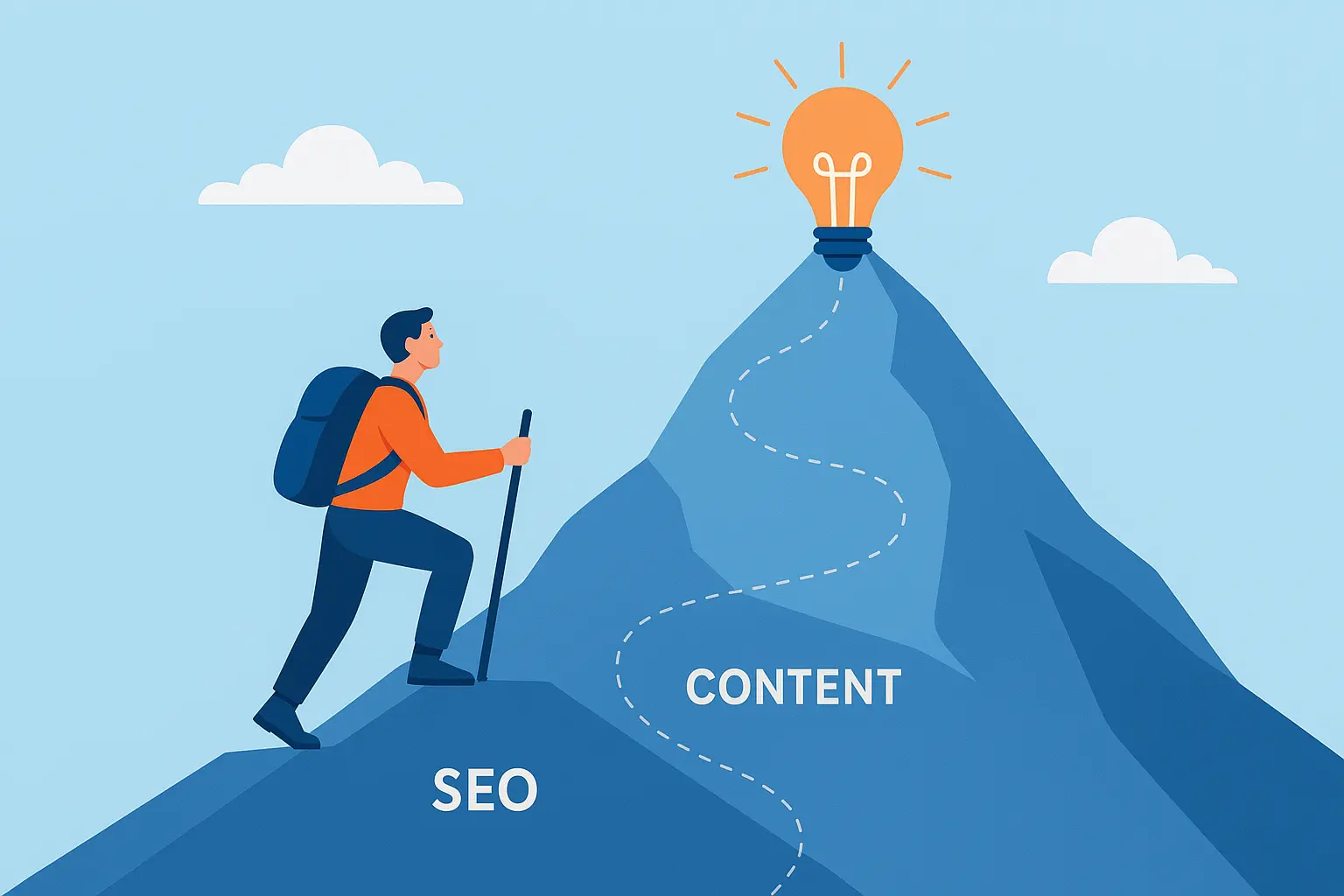Imagine this: You’ve just launched your dream small business. Maybe it’s a cozy online bookstore or a bespoke handcrafted jewelry shop. You have a fantastic product, but there’s a problem – the digital world is a vast ocean, and your business is like a tiny, invisible boat. You’ve heard whispers of “digital marketing” as the magical compass to navigate these waters and find your treasure trove of customers. But then comes the daunting question: how much time does it take to learn digital marketing?
If you’re asking this question, you’re not alone. It’s a query that echoes in the minds of countless entrepreneurs, aspiring marketers, and career changers. The answer, much like a perfect marketing campaign, isn’t a one-size-fits-all. It’s a journey that can take anywhere from a few dedicated months to a continuous lifetime of learning. But don’t let that intimidate you. With the right roadmap, you can start seeing tangible results sooner than you think.
This in-depth guide will demystify the learning curve of digital marketing. We’ll break down the timelines, explore the different learning paths, and provide you with a realistic, step-by-step approach to not just learn, but to thrive in the dynamic world of online marketing.
What is Digital Marketing, and Why Should You Care?
At its core, digital marketing is simply promoting your products or services using electronic devices and the internet. Think of it as the modern-day version of a bustling marketplace, but instead of shouting from a stall, you’re engaging with customers on their phones, laptops, and social media feeds.
Why is it so crucial for your business? In today’s digital-first world, your online presence is often the first interaction a potential customer has with your brand. A strong digital marketing strategy allows you to:
- Reach a wider audience: Break free from geographical limitations and connect with customers across the globe.
- Build meaningful relationships: Engage with your audience, understand their needs, and foster a loyal community around your brand.
- Drive targeted traffic: Attract visitors who are genuinely interested in what you have to offer.
- Measure your success: Unlike traditional marketing, digital marketing provides you with a wealth of data to track your return on investment (ROI) and refine your strategies for better results.
The Learning Timeline: From Novice to Pro
So, let’s get down to the brass tacks. How long will it take you to get a handle on this powerful tool? Here’s a realistic breakdown:
- The Foundational Phase (1-3 Months): This is where you’ll grasp the fundamentals. With consistent effort (think 5-10 hours a week), you can learn the basic concepts of the key digital marketing pillars. This includes understanding the jargon, the main platforms, and the core principles of each discipline.
- The Practitioner Phase (3-6 Months): At this stage, you’re moving beyond theory and getting your hands dirty. You’re not just learning what SEO is, but you’re actively doing keyword research and optimizing a webpage. You’re not just reading about social media marketing, but you’re creating and scheduling posts for a platform.
- The Proficient Phase (6-12 Months): Now, things are starting to click. You can develop and execute basic digital marketing campaigns. You’re comfortable with various tools, you can analyze data to make informed decisions, and you’re starting to see tangible results from your efforts.
- The Mastery Phase (1-2+ Years of Consistent Practice): Becoming a true digital marketing expert is an ongoing process. The digital landscape is constantly evolving, with new algorithms, platforms, and strategies emerging all the time. Mastery involves deep specialization in one or more areas, a strategic understanding of how different channels work together, and the ability to adapt to industry changes.
Your Learning Path: Choosing the Right Road for You
There are two primary paths you can take to learn digital marketing: the structured approach of online courses and the adventurous trail of self-learning.
1. The Structured Path: Online Courses and Certifications
For those who prefer a clear curriculum and expert guidance, structured online courses are an excellent choice. These programs, offered by platforms like Google, HubSpot, Coursera, and numerous digital marketing institutes, can significantly accelerate your learning.
- Time Commitment: A comprehensive digital marketing certification course can typically be completed in 3 to 6 months. These courses often cover all the essential modules, from SEO and content marketing to social media and email marketing.
2. The Self-Taught Route: A Journey of Discovery
If you’re a self-starter with a passion for independent learning, the self-taught path can be incredibly rewarding. The internet is a treasure trove of free and low-cost resources.
- Time Commitment: The timeline for self-learning is more flexible and depends heavily on your dedication and the resources you use. It could take anywhere from 6 months to a year or more to gain a solid, practical understanding.
A Step-by-Step Guide to Learning Digital Marketing on Your Own
Ready to embark on your self-learning adventure? Here’s a roadmap to guide you:
Step 1: Master the Fundamentals (Month 1-2)
- Immerse yourself in the basics: Start by understanding the core concepts of digital marketing. Read beginner-friendly blogs from reputable sources like Neil Patel, Backlinko, and the SouravLabs blog [Insert Link].
- Grasp the key pillars: Familiarize yourself with the main areas of digital marketing:
- Search Engine Optimization (SEO): The art and science of getting your website to rank higher in search engine results.
- Content Marketing: Creating and distributing valuable, relevant, and consistent content to attract and retain a clearly defined audience.
- Social Media Marketing (SMM): Using social media platforms to connect with your audience, build your brand, and drive website traffic.
- Email Marketing: Building and nurturing relationships with your subscribers through email.
- Pay-Per-Click (PPC) Advertising: Running paid ads on platforms like Google Ads and social media.
- Analytics: Understanding and interpreting data to measure the performance of your marketing efforts.
- Take a free introductory course: Google’s “Fundamentals of Digital Marketing” is an excellent starting point.
Step 2: Deep Dive into a Specialization (Month 3-4)
You don’t need to be an expert in everything at once. Choose one or two areas that genuinely interest you and align with your business goals.
- For SEO: Focus on keyword research, on-page SEO (optimizing your website’s content and structure), and off-page SEO (building backlinks). Aim to understand how search engines work.
- Time to Learn Basics: 1-3 months of consistent learning.
- For Content Marketing: Learn about different content formats (blog posts, videos, infographics), content strategy, and storytelling.
- Time to Learn Basics: 1-2 months to grasp the fundamentals of creating valuable content.
- For Social Media Marketing: Choose one or two platforms where your target audience is most active and learn the ins and outs of creating engaging content and running ads on those platforms.
- Time to Learn Basics: 2-4 weeks to get comfortable with the core features of a platform.
Step 3: Get Your Hands Dirty with Practical Experience (Month 5-6 and beyond)
This is the most crucial step. Theory is important, but practical application is where the real learning happens.
- Start your own blog or website: This is your personal laboratory to experiment with everything you’re learning. Write blog posts, optimize them for SEO, and promote them on social media.
- Volunteer for a non-profit or a small business: Offer your newfound skills to help a cause you care about or a local business in need. This will give you real-world experience and build your portfolio.
- Take on small freelance projects: Platforms like Upwork and Fiverr can be a great place to find entry-level digital marketing gigs.
Step 4: Learn the Tools of the Trade (Ongoing)
Digital marketing is powered by a vast array of tools. Start by familiarizing yourself with some of the essential free tools:
- Google Analytics: For tracking website traffic and user behavior.
- Google Search Console: For monitoring your website’s performance in Google search.
- Canva: For creating professional-looking graphics for social media and your blog.
- Mailchimp: For getting started with email marketing.
- HubSpot: Offers a suite of free marketing and sales tools.
Step 5: Stay Curious and Never Stop Learning (Forever!)
The digital marketing landscape is in a constant state of flux. To stay ahead of the curve, you need to be a lifelong learner.
- Follow industry blogs and publications.
- Listen to marketing podcasts.
- Join online communities and forums.
- Attend webinars and online conferences.
Real-Life Inspiration: From Zero to Digital Marketing Hero
Think it’s impossible to learn digital marketing and land a job or grow your business? Think again.
- The Story of Sarah: A recent graduate with a degree in English literature, Sarah was passionate about writing but struggled to find a job. She spent three months immersing herself in the world of content marketing and SEO through online courses and her personal blog. Today, she’s a successful content marketing manager for a tech startup.
- The Case of David’s Deli: A small, family-owned deli, David’s business was struggling to attract new customers. David’s granddaughter, Maria, a high school student, started learning about social media marketing on YouTube. By creating engaging Instagram posts and running targeted Facebook ads, she was able to double the deli’s foot traffic in just six months.
These stories highlight a crucial point: your background doesn’t matter as much as your dedication and willingness to learn.
Mistakes to Avoid on Your Learning Journey
As you navigate the path to digital marketing proficiency, be wary of these common pitfalls:
- Information Overload: Trying to learn everything at once is a recipe for burnout. Focus on one or two areas at a time.
- Neglecting the Fundamentals: Don’t be tempted to jump straight into advanced strategies without a solid understanding of the basics.
- Fear of Failure: You will make mistakes. Campaigns will flop. That’s part of the learning process. Embrace it, learn from it, and keep moving forward.
- Ignoring Analytics: Data is your best friend in digital marketing. Don’t guess what’s working – let the numbers guide your decisions.
- Chasing Shiny Objects: New platforms and trends will constantly emerge. While it’s important to stay updated, don’t abandon your core strategies for every new fad.
Pro Tips for an Accelerated Learning Curve
- Find a Mentor: Connect with an experienced digital marketer who can offer guidance and support.
- Network with Peers: Join online communities and engage in discussions. Learning from your peers can be incredibly valuable.
- Teach What You Learn: The best way to solidify your understanding of a topic is to explain it to someone else. Start a blog, a YouTube channel, or even just explain concepts to a friend.
- Stay Patient and Persistent: Learning digital marketing is a marathon, not a sprint. Celebrate your small wins and stay committed to your long-term goals.
The Final Word: Your Digital Marketing Journey Awaits
So, how much time does it take to learn digital marketing? The most accurate answer is that it’s an ongoing journey of learning and adaptation. However, with a focused effort, you can gain the foundational knowledge and practical skills to make a real impact on your business or career in just a few months.
The key is to start now. Don’t wait for the “perfect” time. Take that first step, be it enrolling in a course, reading a blog post, or creating your first social media page for your business. The digital world is waiting for you to make your mark.
Ready to start your digital marketing journey? Explore our other resources at SouravLabs [Insert Link] for more in-depth guides and practical tips to help you succeed.
Frequently Asked Questions (FAQs)
Q1: Can I learn digital marketing on my own?
A1: Absolutely! With the abundance of free and affordable resources available online, self-learning is a very viable option. It requires discipline and dedication, but it’s entirely possible to become a proficient digital marketer on your own.
Q2: Do I need a degree to get a job in digital marketing?
A2: While a degree in marketing or a related field can be helpful, it’s not a strict requirement. Many successful digital marketers are self-taught or have backgrounds in completely different fields. Practical skills and a strong portfolio are often more important to employers.
Q3: What is the most important skill in digital marketing?
A3: While all the pillars are important, a strong understanding of your audience and the ability to create valuable content are foundational to almost every aspect of digital marketing.
Q4: How can I get practical experience without a job?
A4: Start a personal project like a blog or a YouTube channel. Offer your services to non-profits or small businesses. You can also find freelance opportunities on various online platforms.
Q5: Is digital marketing a good career choice?
A5: Yes, digital marketing is a rapidly growing field with a high demand for skilled professionals. It offers a wide range of career opportunities and the potential for significant growth.


